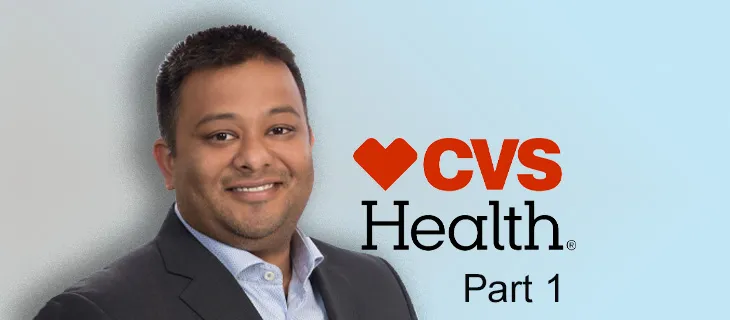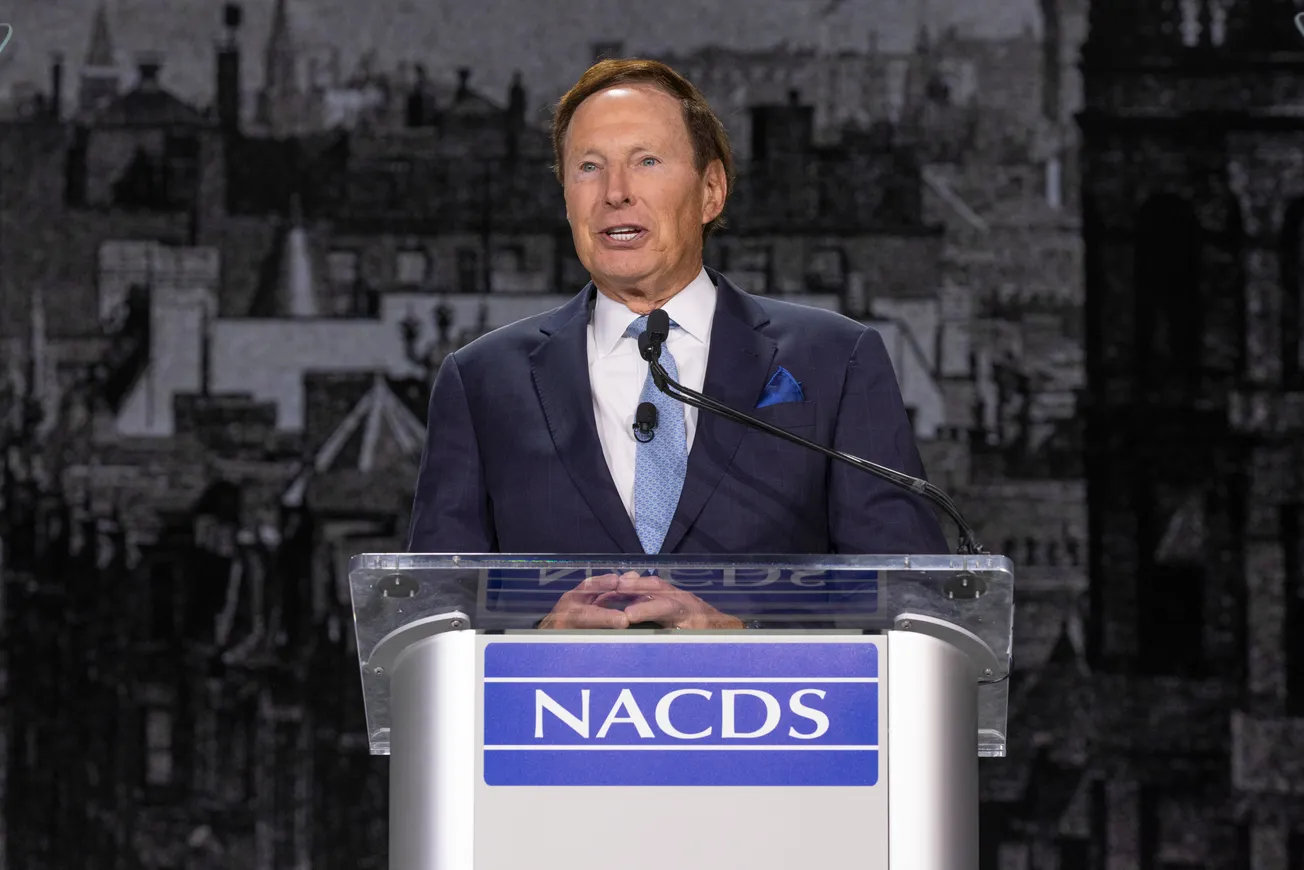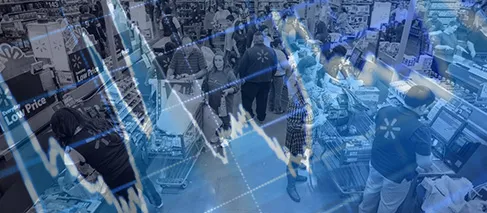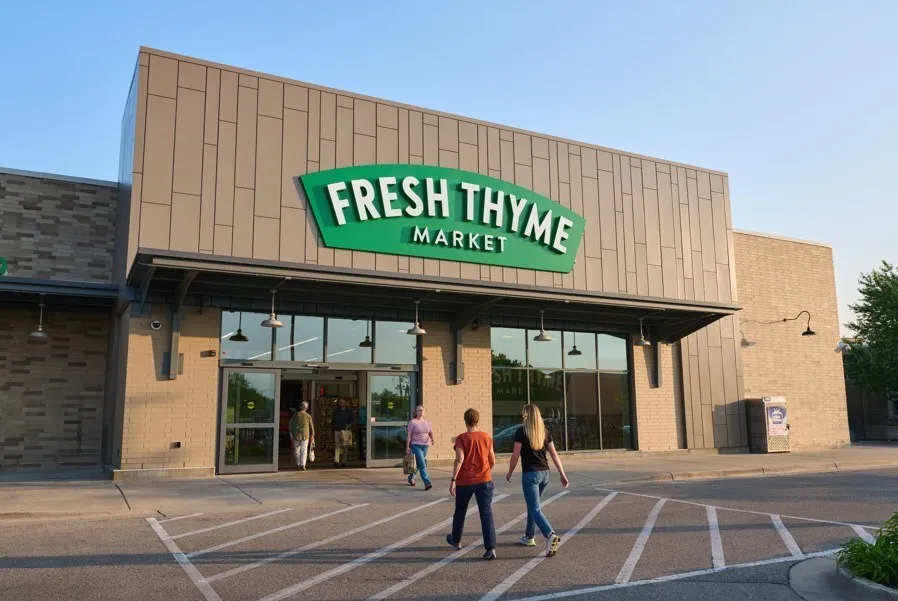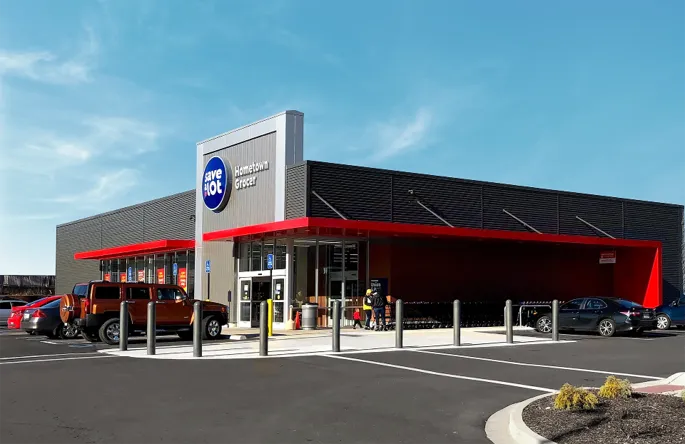In this week’s Video Forum, Prem Shah, executive vice president and chief pharmacy officer of CVS Health and co-president of CVS Pharmacy, discusses the implications of the findings in the company’s recent “Rx Report: A New Day in Retail Pharmacy.” Among the topics he addresses are the trust that patients have in members of the profession, ongoing reimbursement pressures, lessons from the pandemic and pharmacists’ expanding role.
Transcript:
Jeffrey Woldt: Hello everyone. I’m Jeffrey Woldt, editor in chief of Chain Drug Review and mass market retailers. Welcome to our video forum. Today we’re delighted to have as our guest Prem Shah, Executive Vice President and Chief Pharmacy officer of CVS Health and Co-president of CVS Pharmacy. Prem, great to have you here.
Prem Shah: Thanks, Jeff to be here. Really excited to talk to you today.
Jeffrey Woldt: CVS recently published the RX report, a new day in Retail pharmacy. Maybe you could start by telling us what that research is showing you.
Prem Shah: And we’re so excited to publish this report. It’s one of the first in its kind really to lay out some of the positives of the evolving landscape of retail pharmacy as well as some of the challenges we face as an industry. If you think about our role over the last century as pharmacists, it’s really evolved from what I would call as pill dispensers to a trusted healthcare provider. And today you can see the pharmacy teams provide immunizations, they provide clinical counseling, they provide help around the cost of medications in those stores, as well as education on diseases that patients may have. While pharmacists have also played a critical role in healthcare delivery, given the frequency of this interaction, their local presence and their trust with patients, there’s more that we know we can and should do. And now’s the time for the change. If you think about the Covid pandemic and what’s the emphasis that placed on retail pharmacies for Covid testing and vaccinations, this spot lighted the way that we can really, what I would say as play a more integral role in driving convenience and accessibility for patients and really change the view of the way pharmacists and pharmacies behave in our country.
If you think about our local convenience, more than 85% of Americans live within 10 miles of a CVS pharmacy and through Q2 of 2022, we’ve administered more than 54 million COVID-19 tests and 73 million COVID-19 vaccines. But we’re also helping all communities, not just certain communities. If you think about what the pandemic has done for pharmacy, the PREP Act granted pharmacists uniform nationwide authorities that helped address the growing needs of the nation for preventative pharmacy services during the PHE or the Public Health Emergency. These flexibilities allowed pharmacies to quickly add capacity to serve the public while testing, immunizations and treatment to meet their surging demand, all while continuing to fill all the prescriptions needed by patients in the communities. If you think about where and how, what I would say is the convenience and care at their pharmacies, we expect the demand for these services to expand beyond the public health emergency.
We want to help reduce the burden on primary care access and really allow pharmacy-based services to continue to go forward. And if we don’t solve for that after the PHE, we’re going to lose some of these benefits that we had from the public health emergency and the convenience that pharmacies and pharmacists brought to market. Because there’s an urgent need to expand the role and scope of practice for pharmacists, and this will enable us to be better care providers for patients. It will allow us to innovate and offer new services and to meet consumer preference and their demand. If you think about the other issue that’s happening in healthcare, there’s just not enough supply to meet the demand, the aging population we have. So this will help us increase access to pharmacy-based services in a more convenient way for patients across the country. Ultimately, it will enable us as pharmacists, as a provider and to create a better experience for patients, better healthcare outcomes and greater value for payers.
Jeffrey Woldt: Prem in the study trust in pharmacy came to the fore. Maybe you can talk a little bit about what you saw there and why that’s so important.
Prem Shah: Yeah, it’s such a great question and what I would say is it’s incredibly important for a few reasons. One is in healthcare you want to go to trusted providers, people you trust. That’s just who you want to give your healthcare to. And in a recent CVS Health survey, we surveyed over 2200 US adults, and what came through the results is pretty staggering. First, 74% of patients said they trust their local pharmacist and their pharmacy teams. 60% reported visiting a pharmacy at least once and one third already speak with their pharmacy about their healthcare monthly and more than half said they go to a pharmacy for healthcare services due to the convenience of the location. Lastly, 61% of US adults would say that they would like to be able to get a greater range of healthcare services from their local pharmacy when primary care is not available.
So there’s an undoubtable opportunity to optimize clinical care provided in pharmacy and really drive the consumer appetite for expanding the role of pharmacist in healthcare. Patients just also visit their local pharmacist twice as frequently as they visit their primary care physician. And that is just a phenomenal statistic. If you think about how we can impact care, this positions our pharmacy teams to help patients better across and create a better ecosystem to drive higher quality healthcare. So as a result, we’ve pushed the boundaries on ways to add value and deliver more innovative services. But I think the trust piece is absolutely essential in making this come to life. And we know that this is all with the goal of making our healthcare system simpler, more convenient, and more affordable.
Jeffrey Woldt: Well, CVS is certainly ideally positioned to capitalize on those attitudes among consumers. I want to ask you about a couple of the opportunities that you mentioned. The report also mentions unprecedented pressure on pharmacy. I think in the report you refer to it as a perfect storm. Maybe you can talk about the challenges that you face a little bit.
Prem Shah: It’s such a great question and something we’re facing every day in retail pharmacy. The challenges we face is that we continue to see increased volume of normal prescription processing that our stores are required to do, right? There’s a growth and an aging population that’s driving more prescription or prescription growth. The second is we continue to have reimbursement headwinds across our industry that we’re facing. So we had to do more, find ways to be more productive and do it with our capacity. And then if you compound that with what happened during Covid, think about those 50 million tests and 70 million vaccines all coming into the retail channel at the same time, and all of those things led to what I would say is a supply and demand problem. There was too much demand and not enough supply to provide all of these services. So we continue to navigate that very closely.
We continue to think about how do we make the role or our colleagues, how do we make their roles easier? How do we continue to drive better processes so that they’re able to provide more of those high quality clinical care in those settings? And we continue to focus on really managing those pressures so that we can drive forward. And this is not something that just faces CVS, this is something that faces the entire industry in terms of these pressures. Our desire as a company is to be the employer of choice for pharmacists as they come into the workplace and as they think about CVS. We want to be that employer choice, and we want to do that through really driving the best workplace. What I would say is driving incremental clinical services, which is what pharmacists want to do when they leave school, and really think about how to further automate and make our processes better so they’re not doing more of the, what I’d say is putting pills in the bottle work and focusing their time on clinical service and clinical care.
Jeffrey Woldt: The industry is beginning to see something of a pharmacist shortage again. Is that affecting you guys at all at this point?
Prem Shah: We definitely do see the pressures of a shortage around our industry. We’ve been successfully able to navigate it by hiring the best talent, having the best talent strategies to bring our pharmacist in, and really creating the right work environment to move that forward. But definitely there is a shortage and one of the things we’re looking at as well is how do we continue to work with universities to get more people into pharmacy school, and then how do we get more pharmacists to stay in retail pharmacy versus going into other parts of pharmacy such as hospital or other areas? So there’s more work for us to do here, but we continue to focus on that.
Jeffrey Woldt: Prem, how optimistic are you that the powers granted to pharmacies under the PREP Act will be made permanent through either state or federal action?
Prem Shah: What I’m hopeful of is that there’s legislation right now in Congress, it’s H.R.7213 that allows some of the privileges of the PREP Act to continue and allows pharmacists to continue to serve as a provider similar to [inaudible 00:09:08] or physical therapies or PAs, et cetera, physical therapists. This expansion and these flexibilities will allow us to continue to provide the services we’ve had these. The expansion of, for example, Covid prescribing, that’s another example of the PREP Act that they’ve allowed us to now prescribe and treat for covid treatment. These are things that we want to, what I would say is move forward and if you think about what’s happened during the pandemic, why is this really important? So it’s really important because from my perspective, I think consumer behavior has changed. They like the convenience of being able to schedule certain healthcare services through their digital means or through other means. They like the ability to go in their retail pharmacies and be able to get their vaccinations or other types of testing that we offer. So as we think about some of the legislation that’s out there with H.R.7213, that’s going to be a critical way for us to really allow pharmacists to do more and really kind of continue to service patients the way they’ve been serviced throughout Covid.
Jeffrey Woldt: Another thing that the report talks about is enabling reimbursement. Adequate and proper reimbursement for what pharmacists do. How do you view that the prospects for that of changing the basis, I guess, from a fee for product dispense to fee for services rendered or outcomes?
Prem Shah: In every other part of healthcare, there are professional fees affiliated with you going to the doctor or you going to see a physician’s assistant or an ARNP. Our desire is to really have pharmacists have that same ability when they’re providing clinical services, have access to a similar clinical fee. We see this in some regards around the way Covid vaccinations work and testing work. There’s a separate administration fee that pharmacists get for providing those services. We want to expand that. We know that we have a tremendous opportunity to provide these services in our local communities and create differentiation for members, and we want to be able to have that access where patients can get those services similar to the way they would be seen by a physician’s assistant or ARNP for certain services. And prescribed to treat is a great example. We can do that in oral contraceptives for example.
We’re able to do that. However, right now we’re not able to bill for it. What I’d say is broadly, so we to had to do a better job getting that access through. What I’d say is regulation changes, and then we had to get payers to start to pay for some of this. The last piece is we had to continue to think about different ways we can create services that create value for the entire healthcare system. This is not just about pharmacists saying they want to get paid more. This is about creating value and driving better health outcomes for the industry, for payers, for patients, and for providers across the board. So we also want to be able to continue to show our ability, like we did during Covid, of how we can drive more value and quality of care for patients.
Jeffrey Woldt: Thanks, Prem. Look forward to continuing the conversation next week.


